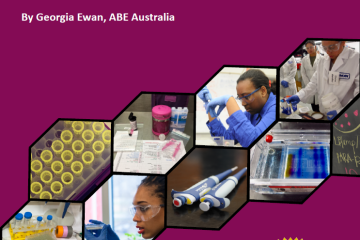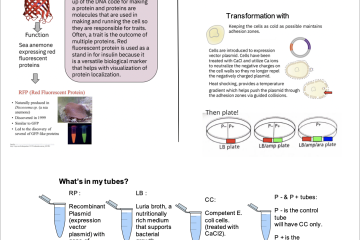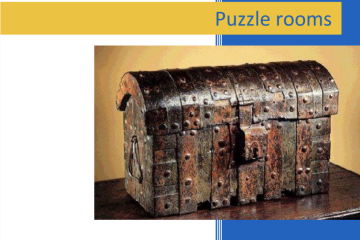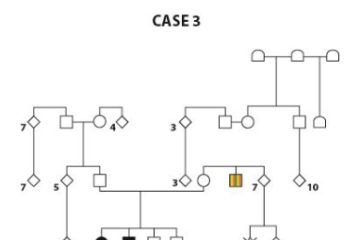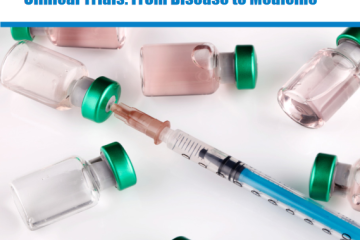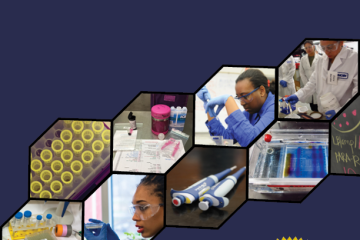
Protein Factory Game
This board game teaches students the fundamentals of transcription and translation. | These materials were developed by an ABE Master Teacher as part of the ABE Master Teacher Fellowship.
ABE “Tools of the Trade” Literacy Activity
This unit. developed by ABE Australia Master Teacher Fellow Georgia Ewan, guides students through a biotech-focused literacy activity. Through model texts, collaborative writing, and independent… Read more
Type(s): Teaching Materials, Classroom-based
Topic(s): Lab Techniques, Gel Electrophoresis, Pipetting, Teaching and Learning, Differentiated Instruction
Education Levels: Lower Secondary, Upper Secondary, Introductory
ABE Visual Guides
The ABE Visual Guides are an excellent resource for both teachers and students; they clearly depict the science content in the ABE Foundations of Biotech labs as well as the steps of each lab. Read more
Type(s): Teaching Materials, Classroom-based, Lab-based
Topic(s): Teaching and Learning, Culturally Responsive Pedagogy, Differentiated Instruction, Emergent Multilingual Learners
Education Levels: Lower Secondary, Upper Secondary, Introductory
Biotech Escape Room Puzzles
These "escape room" puzzles allow students to work through a variety of interesting biotechnology scenarios. Read more
Type(s): Teaching Materials, Classroom-based
Topic(s): Bioinformatics, Lab Techniques, Cloning, Pipetting, Teaching and Learning, Differentiated Instruction
Education Levels: Lower Secondary, Upper Secondary, Introductory
Biotechnology Use in the Real World
In this project, developed by ABE Australia Master Teacher Fellow Amy Chen, students become familiar with the many ways that biotechnology is in the world around us, and how it impacts our lives, and… Read more
Type(s): Teaching Materials, Classroom-based
Topic(s): Biotech & Medicine, Biotech & Society, Bioethics, Lab Techniques, Cloning
Education Levels: Upper Secondary
Changing Organ Donation with Biotechnology
In this pocket lesson, students explore the need for innovative solutions to the shortage of transplantable organs and how gene editing technologies might offer a potential solution. Read more
Type(s): Classroom-based, Pocket Lesson
Topic(s): Biotech & Medicine, Human Disease, Immunology, Bioethics, Gene Editing
Education Levels: Upper Secondary, Advanced
Chasing Cystic Fibrosis
Students become engaged in learning about the disease cystic fibrosis (CF): they develop questions that they have about CF, its treatment, and its consequences, and then explore how they can… Read more
Type(s): Classroom-based
Topic(s): Biotech & Medicine, Human Disease, Data Science
Education Levels: Upper Secondary, Advanced
Clinical Trials: From Disease to Medicine
In the From Disease to Medicine module, students learn about the purpose and structure of clinical research by exploring the various phases of a clinical trial. Students investigate the timeline of… Read more
Type(s): Classroom-based
Topic(s): Biotech & Medicine, Human Disease, Pharmaceuticals, Bioethics
Education Levels: Upper Secondary, Advanced
Computational Thinking and ABE
In this lesson, no instructions are provided. Instead, students use examples of what imaginary players have done to figure out how to play a game. Students practice the four parts of computational… Read more
Type(s): Teaching Materials, Classroom-based
Topic(s): Data Science, Teaching and Learning
Education Levels: Upper Secondary
